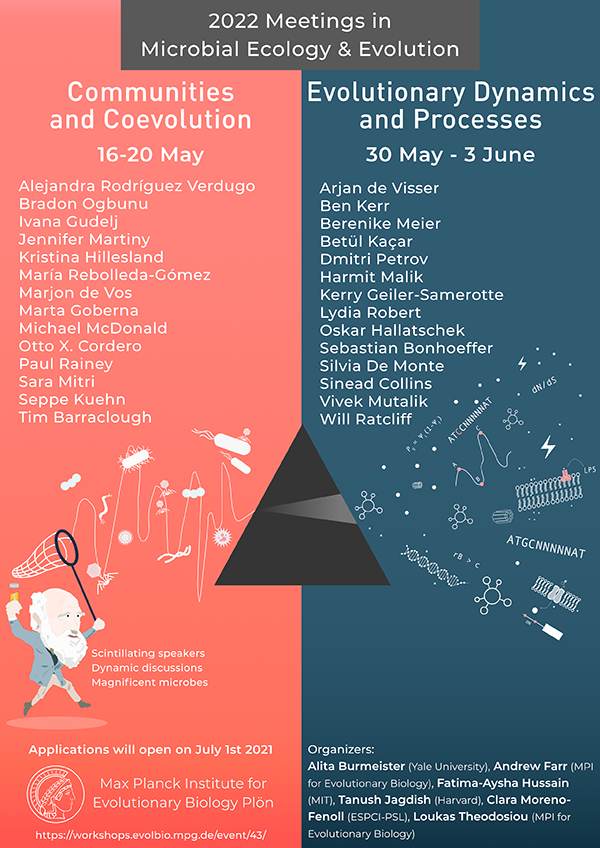Speaker
Description
Yansong Zhao1, Andrew D. Farr1 & Paul B. Rainey1,2 1 Department of Microbial Population Biology, Max Planck Institute for Evolutionary Biology, Plön, Germany. 2 Laboratory of Biophysics and Evolution, ESPCI, Paris, France.
Microbial communities have intrinsic complexity in their composition, totality of interaction and function, which has been an inspiration for scientific curiosity and, at the same time, an obstacle for mechanistic-level understanding. Massive reduction in DNA sequencing costs enables high resolution analysis of microbial community composition, making it possible to study the temporal dynamic of community assembly. In this experiment, we aim to compare how microbial communities sampled from garden compost colonise a new nitrogen-limited environment with either cellulose paper, or glucose, as sole carbon sources. The former is a recalcitrant substrate that is slow to degrade, requires specialised microbes and affords opportunity for substantial resource partitioning. The latter, represents an environment where virtually every microbe has ready access to carbon. Every day samples are taken from the cellulose mesocosms and glucose mesocosms, followed by genomic DNA preparations for 16S rRNA amplicon sequencing. Every two weeks a 1/20 dilution is transferred to fresh mesocosms, with the experiment lasting for eight weeks (four serial dilutions in total). In the end we aim to compare the time series of relative abundances of bacterial genera under different carbon sources, which will contribute to the understanding of microbial community assembly in environments of different harshness.

